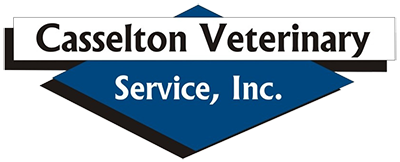Site Menus Section Skip to page content

Site Accessibility Features: Skip to page menus
Site Menus Section Skip to page content

Jan 16 2025
Home » News » Avian Flu And Your Pets
Avian flu (also known as avian influenza or bird flu) is a viral infection caused by influenza type A viruses. It primarily affects wild birds and domestic poultry. The H5N1 strain is of particular concern due to its ability to spread rapidly and potentially infect non-avian species, including mammals like dogs and cats.
During outbreaks, the virus can spread through contact with infected birds, their droppings, feathers, or contaminated environments. Wild birds are the primary carriers, but backyard poultry and pet birds may also be at risk, especially during significant outbreaks.
Dogs and cats can be infected with avian flu, although cases are rare. Pets are at risk if they come into contact with infected birds, droppings, or contaminated surfaces. Pets might be exposed through hunting or eating raw poultry or unpasteurized milk.
Pet birds are at much higher risk of contracting avian flu than dogs or cats, especially pet birds that live outdoors or come into contact with wild birds. They may be infected if exposed to wild birds, bird droppings, or contaminated feed and water. Birds kept indoors have a lower risk but can still be exposed if their food, bedding, or enclosures are contaminated.
Dogs and cats: As cases are rare, the disease process is not fully understood. Infected dogs or cats may show non-specific signs, including:
Pet birds: The symptoms of avian flu can vary based on the severity of the infection. Watch for:
If you notice any of these symptoms in your pets or birds, contact your veterinarian immediately. Early detection and treatment are critical.
Taking preventative measures can help protect your furry or feathered pets from avian flu.
Dogs and Cats
Pet Birds
If there’s an avian flu outbreak in your area, it’s important to be extra cautious.
If your pet dog, cat, or bird shows any signs of illness after potential exposure to wild birds, droppings, or contaminated environments, contact your veterinarian immediately. Early intervention can make all the difference. Find more information on the American Veterinary Medical Association website.
Resources:
LifeLearn News
Note: This article, written by LifeLearn Animal Health (LifeLearn Inc.) is licensed to this practice for the personal use of our clients. Any copying, printing or further distribution is prohibited without the express written permission of Lifelearn. Please note that the news information presented here is NOT a substitute for a proper consultation and/or clinical examination of your pet by a veterinarian.
910 Governor’s Dr. Casselton, ND 58012 Phone: 701-347-5496 Fax: 701-347-5453
Email: clientservices@cassvetservice.com
Hours Mon-Fri: 7:00am – 5:00pm Sat: Closed Sun: Closed
5012 47th St. S. Fargo, ND 58104 Phone: 701-895-2135 Fax: 701-809-9430
Email: clientservicesfargo@cassvetservice.com
Hours Mon: 7:00am – 10:00pm Tues: 7:00am – 10:00pm Wed: 7:00am – 10:00pm Thurs: 7:00am – 10:00pm Fri: 7:00am – 10:00pm Sat: 9:00am – 10:00pm Sun: Closed
5012 47th St. S. Fargo, ND 58104 Phone: 701-895-2135 Fax: 701-809-9430
Email: boardingandgrooming@cassvetservice.com
Hours Monday – Friday: 7:30am – 6:30pm Saturday: 8:00am-12pm & 4:00pm – 6:00pm Sunday: 8:00am-12:00pm & 4:00pm – 6:00pm
These hours reflect drop off and pick up times. Outside of these times we are busy caring for your furry friends and will return messages as soon as we can.
© 2025 Casselton Veterinary Service. Provided by Covetrus | Powered by LifeLearn WebDVM